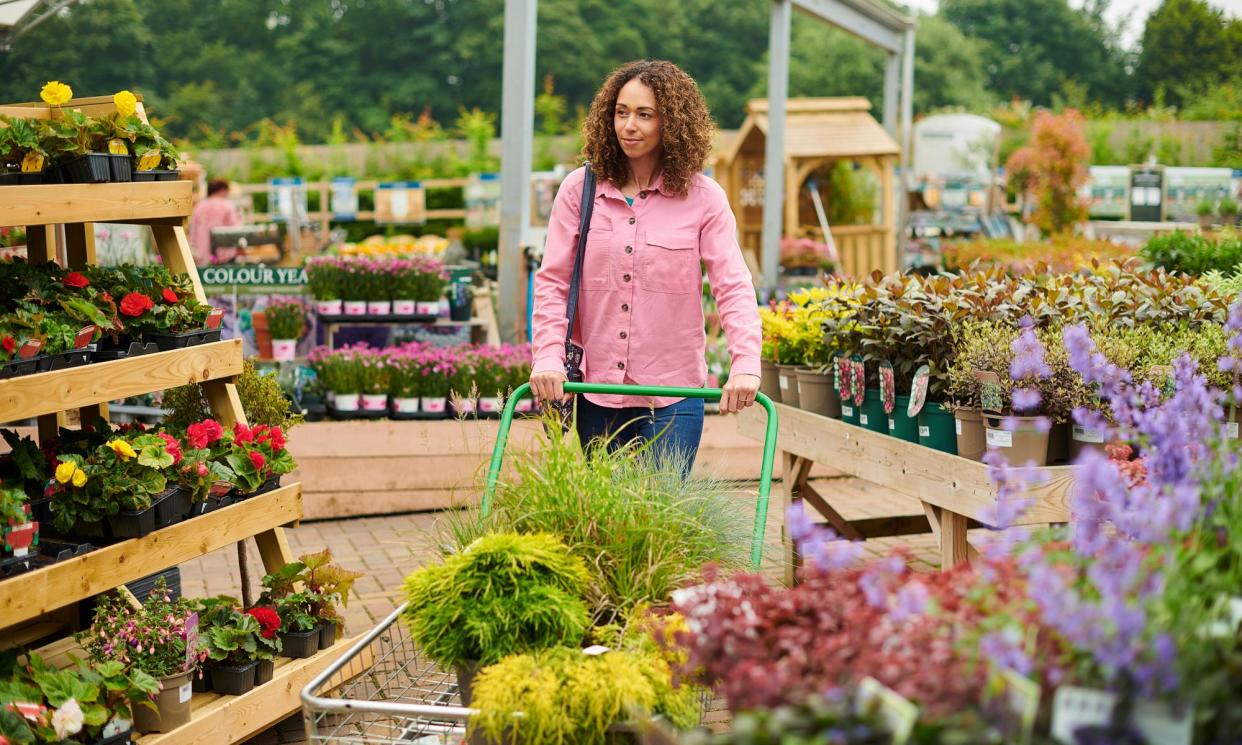Garden centres in UK stockpile plants before new Brexit checks

Garden centres and nurseries are stockpiling plants before Brexit checks are introduced later this month, amid concerns over whether new border posts will be ready to deal with the volume of deliveries.
The Horticultural Trade Association (HTA), which represents garden retailers and growers, said many of its members had been increasing orders of plants in recent weeks, to increase stocks before the checks start on 30 April.
Suppliers on the continent have announced that they will hold back some orders for up to three weeks after the checks begin because of fears that some border control posts (BCPs) could be overwhelmed.
The government will introduce physical checks for many plant and animal products coming into Britain from the EU on 30 April as part of its new border target operating model (Btom). These will be carried out at BCP facilities in places such as Killingholme, Harwich and Sevington, Ashford, with the BCP operators responsible for unloading and reloading products, before presenting them to government inspectors.
However, plant sellers and growers have consistently raised concerns that the checks could cause delays and lead to some plants being destroyed or damaged.
In a survey of 50 HTA members, including garden centres and nurseries, the body found that 41% planned to bring deliveries forward because of the checks.
Sally Cullimore, the HTA’s technical policy manager, said: “We’ve got a bit of a glut going on at the moment, with everyone rushing around to make sure they get stuff in before 30 April.”
She said there were widespread concerns about whether the border control posts were fit for purpose, particularly in connection with the loading and unloading of certain products, adding: “These are our peak trading weeks in horticulture, particularly in garden retail. That’s not a good situation to be in, but there’s just no faith in the system.” HTA figures show that in 2023 more than 14% of garden centre sales happened in May, more than any other month.
The government has insisted the posts will be ready and that the checks are essential for Britain’s biosecurity, and to stop the import of diseases that could adversely affect the country’s plant life.
Stockpiling is being largely confined to wooded plants, shrubs and perennials that have a longer shelf life, while other, more perishable species, are less affected.
Martin Emmett, whose company Farplants imports half of its products from the EU, said his business had brought forward by three weeks the deliveries of some products scheduled for the end of the month.
Emmett, who is also the NFU’s chair of the horticulture and potatoes board, said: “Products with longer production schedules give some flexibility to when they can be brought in, and we are taking those in as early as possible before 30 April. These are things like shrubs and garden flowers, such as geraniums and echinaceas.”
Andy Moreham, sales manager at Joseph Rochford Gardens, said the Hertfordshire-based company had decided to bring in its plants from Italy, which makes up 15% of its imports, two weeks early.
He said: “The loads from Italy are generally loaded loose and in a complicated way, so we’ve decided to call that in earlier. We don’t believe that that can be done quickly and efficiently at the border control points.”
The decision by some businesses have been forced by suppliers on the continent deciding to stop sending goods to the UK in the first few weeks after the border checks come in.
Richard McKenna, managing director at Provender Nurseries in Swanley, Kent, said that while his business was ordering as normal, some suppliers in Ireland, the Netherlands and France would not ship for up to three weeks after the checks came in, meaning some products were impossible to get.
Tim Rozendaal, strategic adviser at VGB, the Dutch association of wholesalers in floricultural products, said concerns BCPs would be “overwhelmed by imports at peak times”, meant some of its members were holding back deliveries by up to a week. He added: “This hesitation poses a challenge for the industry, as the peak season is short, and any missed sales during this critical period can have a substantial impact on business results.”
A government spokesperson said: “We are committed to supporting businesses as they adapt to new border checks and maintaining the smooth flow of imported goods. We are working with the horticultural sector to test infrastructure and systems ahead of their introduction.
“We are confident we have sufficient capacity and capability across all points of entry to handle the volume and type of expected checks, while inspectors have undertaken extensive training to ensure goods are treated safely and with care.”

 Yahoo News
Yahoo News 
